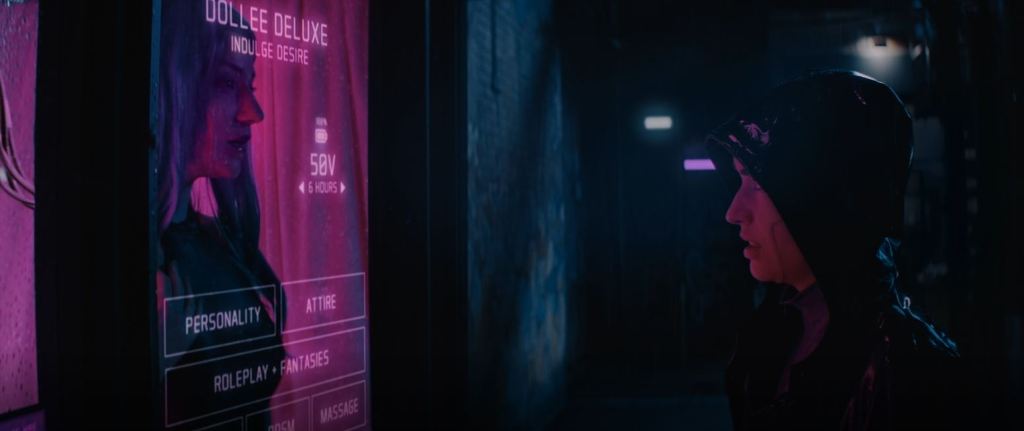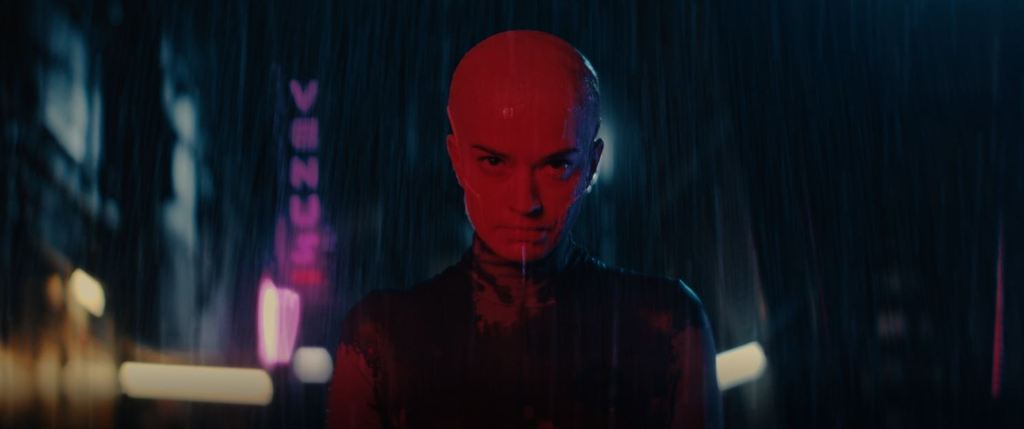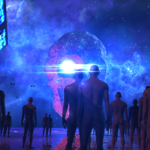Over the years I’ve contributed to a number of crowd-funded projects, as I believe it’s important to support alternative financing methods to help overcome some of the barriers that act as gatekeepers of culture.
My favourite has always been Radio Free Albemuth, which highlighted how powerful it can be to have true fans producing something as a dedicated labour of love; rather than just an effective marketing tool to get people to part with their money. Donating to that campaign even led to more personal interactions with its creators, including an interview on this site, and showed me how the crowd-funding model can really open up media into a more collaborative and dynamic experience with its audience.
I’m pleased to say that another such project, albeit one of smaller scope than the feature-length Radio Free Albemuth, has come to fruition. That project is an independent short-film called VENUS that has recently been released and made available in digital form to backers.
An insurgent mother uploads the consciousness of her tragically killed daughter, Iris, into a stolen synthetic body. Torn out of her idyllic digital world and left on the run in an oppressive futuristic city, Iris must confront her body's objectification and its violent capabilities, as well as the consequences of her mother's actions.
The 14min short presents us with familiar cyberpunk concepts, but extends them into a few new areas of nuance. Centered around the notion of uploading consciousness into a new synthetic body; there are themes of control and consent, as well as undertones of rebellion. All wrapped up in production values that draw you into the world and immerse you in the brief moments presented.
As a self-contained story, it is interesting and engaging – even effectively uncomfortable at times – and presents the larger picture behind the scenes with enough detail to feel complete in its own right. But that underlies the fact that this is clearly just the beginning of the next, violent chapter in the protagonist’s story. A prelude for the real conflict to come.
In an interview posted here last August, which goes through a number of interesting areas and is worth reading in full, the Director of VENUS, Andrew McGee, put forward how he wanted the genre to evolve out of its problematic reliance on the male-gaze:
Most of the cyberpunk artwork I scroll through on, say, Instagram are largely women with unrealistic proportions bursting out of shiny catsuits, surrounded by cables and holograms. The genre has far more to offer beyond those popular surface aesthetics, and I felt it was something worth interrogating.
This has been achieved in the end product. Not only through the lens of challenging the violent misogyny of a futuristic sex industry, but also through more subtle allocations of a maternal scientific progenitor; or even the assertiveness of a scruffy, female underworld figure. Thankfully this is not done in a ham-fisted, overly woke manner. Rather it is part of the immersion of the world presented, unquestioned not only by the narrative but through the presence of the performers and the matter-of-fact nature with which they interact with and belong to the world around them.
The production levels are immediately evocative of shows such as Black Mirror; or even more so the British television series Electric Dreams based on the short stories of Philip K. Dick (with slight shades of modern Doctor Who in there as well). This speaks highly of the independent film team behind the project, who have delivered on every level a professional product to broadcast standard.
The final round of funding (which is where I contributed) was sought to develop the film’s special effects. Money well spent and necessary to bring the impact of the short story home and build the world properly to draw the viewer in. The effects are believable and at times rather unique in their depiction of other similar scenes we might have seen before. This is topped off by an excellent ambient soundtrack throughout, with subtle melodic tones bathed in soft reverb along with a closing track reminiscent of goth-synth bands such as Switchblade Symphony.
Although the handling of the cyberpunk genre has numerous cliches still in place (not least of which the neon colour tones), there are enough nuances in its brief running time to feel like a modern understanding of a genre that goes back to the 1970s. Cyberpunk has always been about tropes – that’s part of its charm – but equally it is about facing that interaction, wherever it arises, between technological progress and the darker sides of the human condition.
Whether through dystopian surveillance-states punctuated by excessive force against citizens, or the degradation of humanity through the commoditisation of our biological forms – both of which are present here – cyberpunk assertively forces us to view the violence of our social structures. While blending the distinction between human and technology to the point of disappearance, the genre holds up a mirror and asks just how comfortable we are with such a future. It feels inevitable, and in some ways it is, but that doesn’t mean that we should just ignore the path we are on and the consequences that might result.
Perhaps the only negative thing that could be said about VENUS is that it doesn’t have time to explore the issues it raises: it leaves you wanting more. This is no criticism, though, because it does so with an immersive elegance that demands attention and a chance to present its vision in a longer format. It is clear that a great deal of back-story and world-building has gone into its short running time, coming across almost like an adaptation of a graphic novel. This is more than just a cinemagraphically impressive set-piece of cyberpunk tropes (although it achieves that also) – it is the first glimpse we have into something more substantial and with enough depth to immediately draw us into its world.
This is consistent with the greater purpose behind the project. As Andrew McGee stated in our previous interview, they have always been open that the plan is for the short to be used as a springboard to a more substantial project:
The feature-length story would keep the same epic cyberpunk scale while remaining quite an intimate and contained character-driven story, dealing with similar concepts and expanding on other areas I’m interested in. This short would essentially be the beginning of the film and I’m very excited by the prospect, I really hope I can get it off the ground.
Overall, this is a fantastic short film that deserves attention from those able to green-light a more substantial production. Even without such, it has certainly earned our attention and future success with another round of crowd-funding to allow the independent crew to continue on their own. I’m looking forward to seeing what comes next from VENUS as it presents recognisable cyberpunk themes in ways that are tilted enough to start to enter into new areas.
VENUS has a gravity to it that speaks of deeper issues within a fully-realised setting, one that draws you in and leaves you ready for more. Focused not only on elements that are often glossed over, but perhaps more importantly from a female perspective and relationship to such worlds.

![[Review] VENUS: A Cyberpunk Short Film](https://www.futureconscience.com/wp-content/uploads/2021/02/Venus-Review_Title-764x267.jpg)






